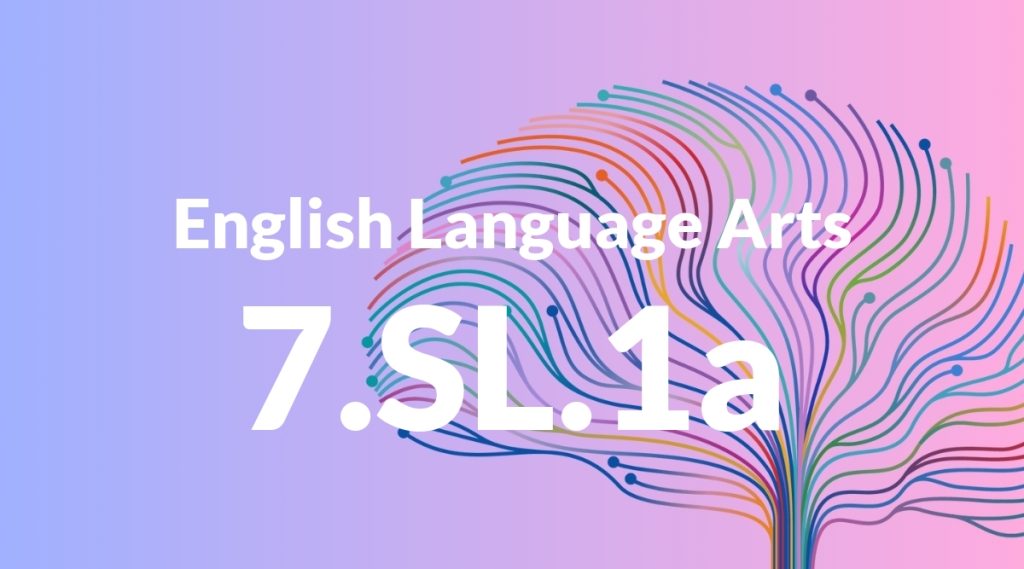Standard: 7.SL.1a – Come to discussions prepared, having read or researched material under study; explicitly draw on that preparation by referring to evidence on the topic, text, or issue to probe and reflect on ideas under discussion.
Grade level: Grade 7
Subject: English Language Arts
Domain: Speaking & Listening
Teacher Overview
This standard emphasizes the importance of preparation for discussions by requiring students to read or research the material beforehand and use that preparation to contribute meaningfully to discussions. It is crucial for developing critical thinking and effective communication skills. Students should have basic reading comprehension skills, be familiar with note-taking strategies, and understand how to extract key information from texts.
Students will develop advanced critical thinking skills, improve their ability to articulate and defend their ideas, and enhance their collaborative discussion techniques.
Common Misconception 1
Some students may think that merely reading the material is sufficient preparation. However, effective discussion requires deeper engagement, such as annotating texts and summarizing key points.
Intervention 1
Introduce strategies for active reading, such as annotation and summarization, and provide practice opportunities in small groups.
Common Misconception 2
Another common misconception is that personal opinions alone are enough for discussions. In reality, discussions should be supported by evidence from texts or research.
Intervention 2
Model how to use evidence to support arguments and provide examples. Use peer review to assess evidence-based contributions in discussions.
Prerequisite Knowledge
Students should have basic reading comprehension skills, be familiar with note-taking strategies, and understand how to extract key information from texts.
Subsequent Knowledge
Students will develop advanced critical thinking skills, improve their ability to articulate and defend their ideas, and enhance their collaborative discussion techniques.
Instructional Activities
- Annotate and summarize key points from a text
- Role-play a panel discussion on a researched topic
- Create a debate club where students prepare and discuss various topics
- Group projects where each member presents their findings
- Peer review sessions focusing on evidence-based feedback




